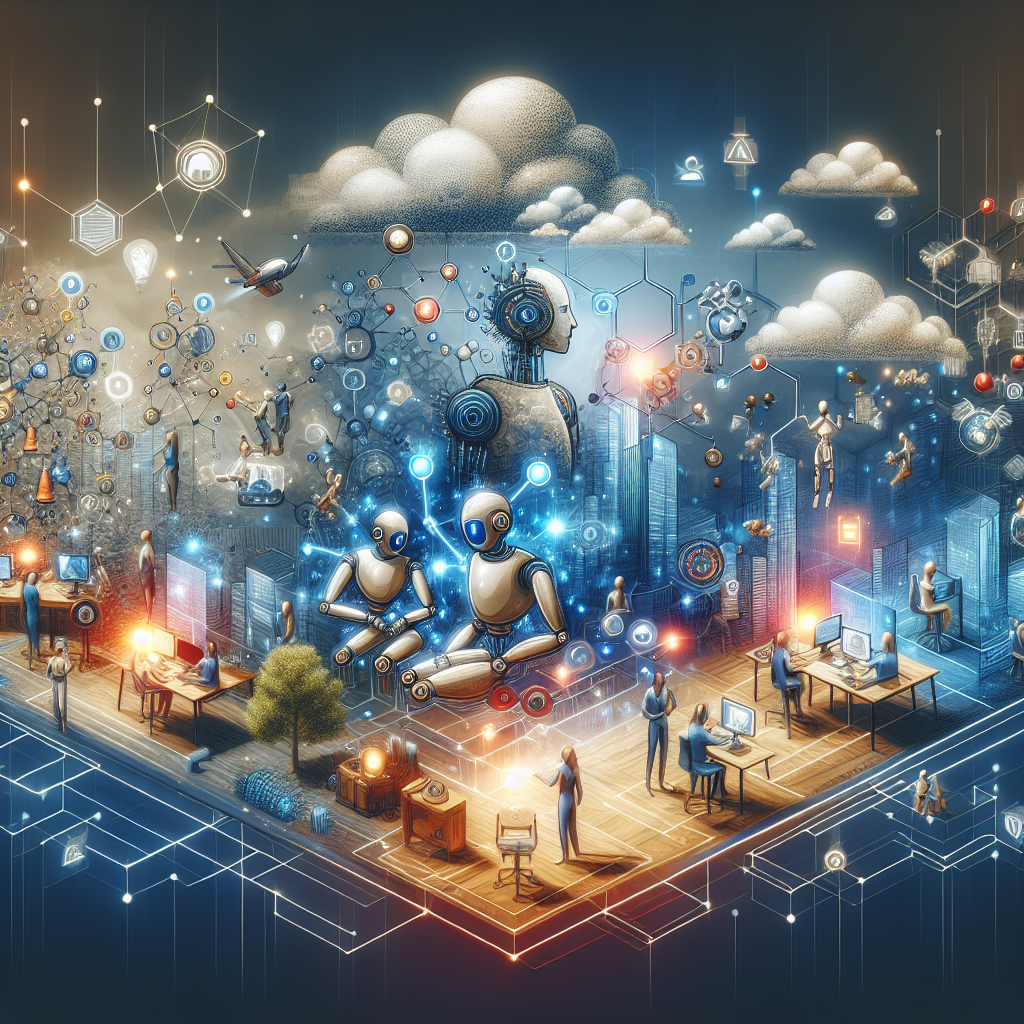The Future of AI Development in Remote Work
The rise of remote work has been a significant trend in recent years, accelerated by the global pandemic. As more companies embrace remote work as a long-term solution, the need for advanced technologies to support this shift has become increasingly important. Artificial Intelligence (AI) is one such technology that is poised to play a crucial role in the future of remote work.
AI has the potential to transform the way we work, making processes more efficient, improving productivity, and enabling better communication and collaboration among remote teams. In this article, we will explore the future of AI development in remote work and how it is set to revolutionize the way we work and interact in the digital age.
AI-Powered Automation
One of the key areas where AI is expected to have a significant impact on remote work is in automation. AI-powered automation tools can streamline repetitive tasks, freeing up time for employees to focus on more strategic and creative work. This can lead to increased productivity and efficiency, as well as reduced errors and bottlenecks in workflows.
For example, AI chatbots can be used to automate customer service inquiries, freeing up human agents to handle more complex issues. AI-powered scheduling tools can help remote workers manage their calendars more effectively, while AI algorithms can be used to analyze data and generate insights to inform decision-making.
Collaboration and Communication
AI is also set to revolutionize collaboration and communication in remote work settings. With AI-powered tools, remote teams can collaborate more effectively, whether they are working on a project together or simply communicating with one another. AI can help facilitate real-time communication, enabling remote workers to stay connected and engaged with their colleagues.
For example, AI-powered virtual assistants can help remote workers schedule meetings, set reminders, and even transcribe conversations during virtual meetings. AI algorithms can also be used to analyze communication patterns among remote teams, identifying areas where communication could be improved and suggesting solutions to enhance collaboration.
Data Security and Privacy
As remote work becomes more prevalent, data security and privacy are becoming increasingly important considerations for companies. AI can play a crucial role in helping to secure sensitive data and protect remote workers from cyber threats. AI algorithms can detect unusual patterns in data access and usage, flagging potential security breaches before they occur.
AI-powered tools can also help remote workers protect their personal information and privacy while working remotely. For example, AI can be used to encrypt sensitive communications, detect phishing attempts, and monitor network activity for suspicious behavior. By leveraging AI technologies, companies can ensure that their remote work environments are secure and compliant with data protection regulations.
Training and Development
AI can also facilitate training and development for remote workers, enabling companies to upskill their employees and adapt to changing business needs. AI-powered learning platforms can personalize training programs for individual employees, based on their learning styles and preferences. This can help remote workers acquire new skills and knowledge more efficiently, improving their performance and job satisfaction.
AI can also be used to assess the performance of remote workers and provide feedback on areas where improvement is needed. By analyzing data on employee performance and behavior, AI algorithms can identify training opportunities and recommend development programs to help remote workers reach their full potential.
FAQs
Q: How will AI impact the future of remote work?
A: AI is expected to revolutionize remote work by enabling automation, improving collaboration and communication, enhancing data security and privacy, and facilitating training and development for remote workers.
Q: What are some examples of AI-powered tools for remote work?
A: AI-powered tools for remote work include virtual assistants, scheduling tools, collaboration platforms, data security solutions, and training and development programs.
Q: How can companies leverage AI to support remote work?
A: Companies can leverage AI to automate repetitive tasks, facilitate communication and collaboration among remote teams, enhance data security and privacy, and provide training and development opportunities for remote workers.
Q: What are the benefits of using AI in remote work settings?
A: The benefits of using AI in remote work settings include increased productivity and efficiency, improved communication and collaboration, enhanced data security and privacy, and personalized training and development opportunities for remote workers.
In conclusion, the future of AI development in remote work is bright, with AI-powered technologies set to revolutionize the way we work and interact in the digital age. By leveraging AI tools and algorithms, companies can streamline processes, improve productivity, and enhance communication and collaboration among remote teams. As remote work continues to evolve, AI will play a crucial role in driving innovation and enabling companies to thrive in the new era of work.

